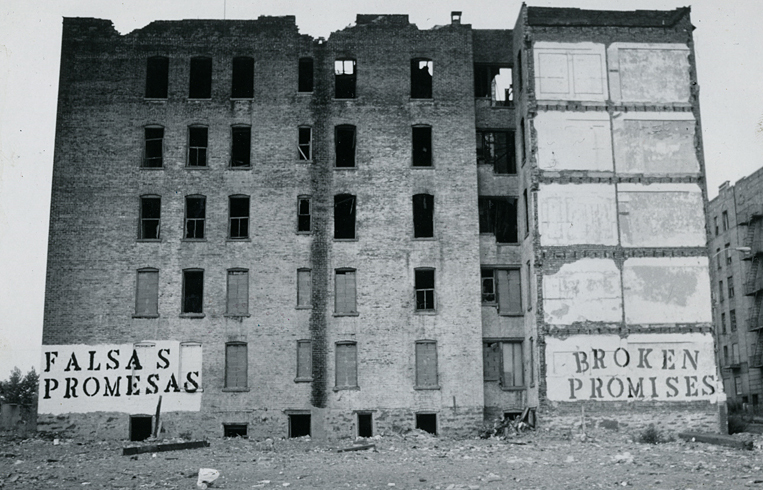 I presented a somewhat detailed response to this topic a while ago: since then, the essay Zizek wrote on "Why Heidegger Made the Right Step in 1933" has made its way into his newest book, In Defense of Lost Causes--the topic thus merits a reconsideration, but I'll be more brief and more blunt.
I presented a somewhat detailed response to this topic a while ago: since then, the essay Zizek wrote on "Why Heidegger Made the Right Step in 1933" has made its way into his newest book, In Defense of Lost Causes--the topic thus merits a reconsideration, but I'll be more brief and more blunt.Zizek's effort in this book is valiant. One can take this recent and precise characterization of the book by Terry Eagleton (a rarity in Eagleton's corpus--and perhaps the only one in this shallow, resentful review), and affirm it against Eagleton's scorn:
The self-consciously outrageous case the book has to argue is that there is a “redemptive” moment to be plucked from such failed revolutionary ventures as Jacobinism, Leninism, Stalinism and Maoism. Žižek is by no means a champion of political terror: the Mao he offers us here, for example, is the mass murderer who mused that “half of China may have to die” in the Great Leap Forward, and who remarked that though a nuclear war might blow a hole in the planet, it would leave the cosmos largely untouched. His aim is not to justify such demented views, but to make things harder for the typical liberal middle-class dismissal of them (my italics).
Perhaps Eagleton phrases it in an asinine way, but I think that this "making things harder" of Zizek is precisely how we should read Zizek's effort. Phrased a little less cynically, we might put Eagleton's statement this way: Zizek restores weight to politics, philosophy, and culture--this is his mission and has been his mission consistently throughout this career. And rather than losing momentum over the years, he has only become more intense--his ambitions and his fire only have grown.
But Eagleton's idiocy locates the problem in this restoration--he makes the same mistake as Zizek, but falls only on the other side of its result. The problem is this: who is the subject to which Zizek addresses his discourse? Granted, unlike other big thinkers on the Left (I'm particularly thinking of certain Frenchmen, with their extraordinary academic and state apparatuses), Zizek's ideas is less institutionally supported in the sense of having a stable and somewhat more closed forum in which to speak--indeed, his best work is when he is among psychoanalysts. But his major works are always more global than that: he is probably the first thoroughly global (and this does not mean international) thinker. This means that his remarks are directed somewhat all over the place. And in the end, who reads them? Well, in the UK and in America, the typical middle-class Anglo-American thinker (I bypass the great and much more fruitful reception he has had elsewhere, and merely talk about our Zizek, the Zizek that we see and talk about here). I'm not saying the people are middle-class who read Zizek. It is that the particular middle-class that Eagleton has in mind is the one sympathized with and identified with by the Left intellectual: the subject needed to be mobilized and enlightened in order to do something substantial about capitalism. Zizek's great achievement is to try and restore some weight to Marxist notions and the Marxist spirit by showing Marxism isn't as old as we thought: it still has life in it yet, because it can link up in a creative way with Lacan--that is, an anti-humanistic (but not Althusserian) thinking. This must resolutely be called "making things harder" only in the sense that this means an ascesis, a training in thinking and in activity so as to be able to adjust thinking to the radically new problems posed by capitalism--those problems which escape the more rigid Marxism of most of the twentieth century. In short, it means thinking about action: Zizek is the thinker of individual and collective action against and within capitalism--if this means things must be harder, it means that we also are on the way to addressing their difficulty by becoming hard. Eagleton cannot know what this means: all he can do is seek out points where real thinkers are complicit in the capitalism they criticize.
Thus, where Eagleton would stupidly see some hypocrisy in the precise identity of the Anglo-American subject of Zizek's work (shouldn't Zizek mainly be talking to the rebels?), we can begin to see that the real problem in this identity is that it can only be marshaled into action by appeals to practicality--or at least this is what Zizek seems to assume (and with some grounds for doing so). The extremely impractical restorative weight that he gives to certain problems, then, ultimately has to turn on almost being able to be confused with the immediately practical: this is the one, sole aspect that constitutes the Zizekian flair in almost every sentence. There is a reversal on a conceptual level that he effects--for example, what Heidegger did in 1933 (join the Nazi party) was not evil, but actually a rare thinking-through of the commitment his philosophy was making politically and one that took place not within that philosophy itself (smuggled into texts) but in action--and this reversal almost of itself can seem to be absolutely pragmatic--it suggests that one should not philosophize politics as much as engage in political action. The force of this reversal is always an appeal to pragmatic action--and this because the audience Zizek writes his sentences for is one that needs not only conceptual shifts and reversals but clues to guide their practical activity. In short, the people Zizek writes for can't just think through a conceptual reversal--they need the force of this reversal to reflect some practical action they can engage in then and there.
 While this might be right about these readers, I wonder whether Zizek doesn't need to rethink this aspect of his writings--for in a case like this with Heidegger we see that perhaps another way of arguing and appealing would be both more practical and intellectually interesting. For what is Zizek's treatment of Heidegger, after all? It doesn't say much besides its title: in short, postmodernist philosophers who sneak politics into their words are weak compared to even Heidegger, who had the smarts to join a party in the open, as an action--that is, be committed to what one says even more than theorizing it. Of course this was a monstrous choice--but in principle, with other parties, this is what the Left needs. So Zizek argues, but this is only to isolate what is most obvious about the case of Heidegger: that he made a political decision which was tied into his thinking. Beyond the shock, the appeal to mobilize in a similarly counterintuitive way (but with a totally different party)--precisely because (according to Zizek) Heidegger's case is a paradigmatic instance of the risks of political engagement for thinkers--this does not do much. And it risks making a sly appeal to the perverse in Heidegger's action as what we should feel if we are being political, if we are being active--it gives us something disturbing that we can be okay with so we can get off our asses and mobilize. In other words, this makes it seem as if the bar is lowered for all of us and that political action is just perverse since it always risks being an abomination. In short, it risks being pragmatic for the sake of being pragmatic--that is, just to mobilize. And it is willing to sacrifice the conclusions for this aim. This is Zizek's fault--and to say this is to be as far away from chastising him as a provocateur as possible.
While this might be right about these readers, I wonder whether Zizek doesn't need to rethink this aspect of his writings--for in a case like this with Heidegger we see that perhaps another way of arguing and appealing would be both more practical and intellectually interesting. For what is Zizek's treatment of Heidegger, after all? It doesn't say much besides its title: in short, postmodernist philosophers who sneak politics into their words are weak compared to even Heidegger, who had the smarts to join a party in the open, as an action--that is, be committed to what one says even more than theorizing it. Of course this was a monstrous choice--but in principle, with other parties, this is what the Left needs. So Zizek argues, but this is only to isolate what is most obvious about the case of Heidegger: that he made a political decision which was tied into his thinking. Beyond the shock, the appeal to mobilize in a similarly counterintuitive way (but with a totally different party)--precisely because (according to Zizek) Heidegger's case is a paradigmatic instance of the risks of political engagement for thinkers--this does not do much. And it risks making a sly appeal to the perverse in Heidegger's action as what we should feel if we are being political, if we are being active--it gives us something disturbing that we can be okay with so we can get off our asses and mobilize. In other words, this makes it seem as if the bar is lowered for all of us and that political action is just perverse since it always risks being an abomination. In short, it risks being pragmatic for the sake of being pragmatic--that is, just to mobilize. And it is willing to sacrifice the conclusions for this aim. This is Zizek's fault--and to say this is to be as far away from chastising him as a provocateur as possible.In the end, if Zizek is advocating an action like Heidegger's but directed differently--if he is saying that most political action of thinkers has to risk becoming Heidegger--well I can't see how this isn't a refusal to think what is so vile in Heidegger: the privileging of presence, of activity, of manliness, of the poetic; and the denigrating of the calculating, the prosaic, the everyday--all this, so prevalent in his writings, being made into a Nazism, committed to very specific ideals that are unspeakably disgusting. Many thinkers have had these privileges before: they are not Nazis. And if Zizek is saying that they are precisely not politically engaged because of this--well, he is waging a war not just pragmatically in the now against capitalism, but with a lot of human history. It all comes down to this: is Zizek's discussion of Heidegger an example for a revolutionary mind? Or is it something more impractical? If it is the latter, well, I don't know how we would read Zizek.
















